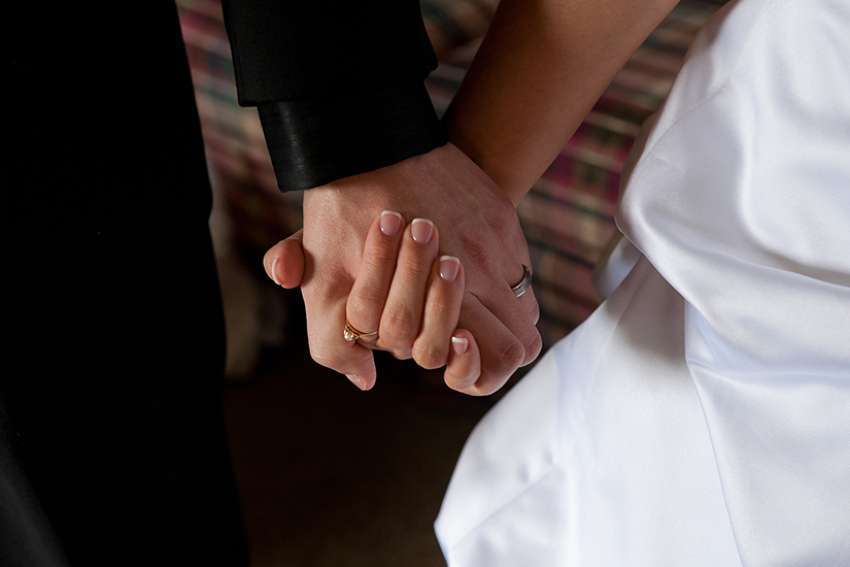The dioceses of Canada reported in 2016 that about 40.7 percent of their cases were handled free of charge, 40.1 percent involved a partial payment and 19 percent included a full charge to the petitioner.
CNS photo
More annulment processes done for free, Vatican statistics show
By Catholic News Service
VATICAN – Implementation of Pope Francis' abbreviated process for declaring the nullity of a marriage got off to a slow start, Vatican statistics showed, but his encouragement for making the annulment process free for petitioners fared better.
Many dioceses in the United States and Canada already had been subsidizing all or part of the costs involved in the process when, in 2015, Pope Francis issued documents reforming part of the annulment processes. The documents were: "Mitis Iudex Dominus Iesus" ("The Lord Jesus, the Gentle Judge") for the Latin-rite church and "Mitis et Misericors Iesus," ("The Meek and Merciful Jesus") for the Eastern Catholic churches.
The documents encouraged bishops to fully fund their marriage tribunals and not charge petitioners "so that, in a matter so closely tied to the salvation of souls, the church -- by demonstrating to the faithful that she is a generous mother -- may demonstrate the gratuitous love of Christ, which saves us all."
Pope Francis, in the same documents, introduced an abbreviated process by which a diocesan bishop can issue a declaration of nullity.
The Vatican's Statistical Yearbook 2016, completed in February and recently published, reported that over the course of the year, about 33.7 percent of the nullity cases handled around the world were handled at no charge to the person petitioning; in 23.3 percent of the cases, the person was asked to cover some of the tribunal costs of his or her case; and in about 42.8 percent of the cases, the petitioner covered all the costs.
Ten years earlier, the Statistical Yearbook 2006 reported only about 23.3 percent of cases were handled free of charge, 30.3 percent of cases included a partial charge and, in 46.3 percent of the cases, the petitioners were asked to cover the full cost.
In the country-by-country breakdown, the yearbook reported that in 2016, fully 50 percent of annulment requests in the United States were handled for free; 20.8 percent of cases in the United States involved a partial charge and about 29 percent included a full charge.
The dioceses of Canada reported in 2016 that about 40.7 percent of their cases were handled free of charge, 40.1 percent involved a partial payment and 19 percent included a full charge to the petitioner.
The new rules issued by Pope Francis in 2015 empowered a bishop to issue a decree of nullity when certain conditions are evident, for example, when it is clear one or both parties lacked the faith to give full consent to a Catholic marriage, or when physical violence was used to extort consent for the marriage.
Of the more than 50,000 marriage cases handled by the church worldwide in 2016, the yearbook said, fewer than 1,700 involved what the book described as the "briefer process before the bishop," and only 1,118 of the cases were completed during the year.
Bishops in the Americas -- North, Central and South -- were responsible for clearing more than half of the completed cases. Of those, 289 were reported in the United States and 18 in Canada. Bishops in Asia completed 200 abbreviated cases while the bishops of Europe completed 196 cases. No cases were reported from Australia or New Zealand.
Tagged under:
Please support The Catholic Register
Unlike many media companies, The Catholic Register has never charged readers for access to the news and information on our website. We want to keep our award-winning journalism as widely available as possible. But we need your help.
For more than 125 years, The Register has been a trusted source of faith-based journalism. By making even a small donation you help ensure our future as an important voice in the Catholic Church. If you support the mission of Catholic journalism, please donate today. Thank you.
DONATE

